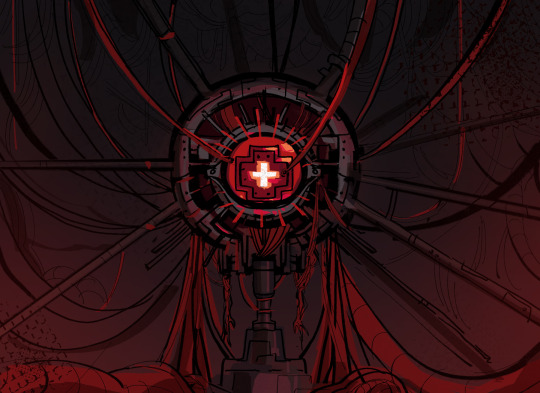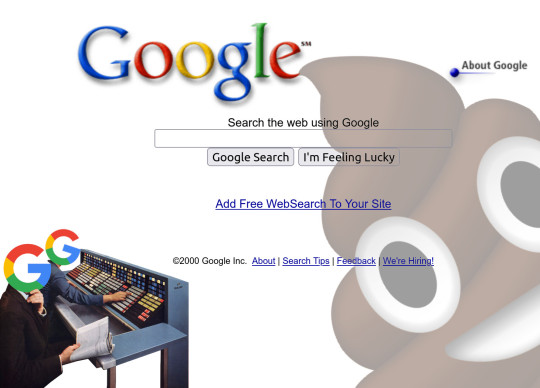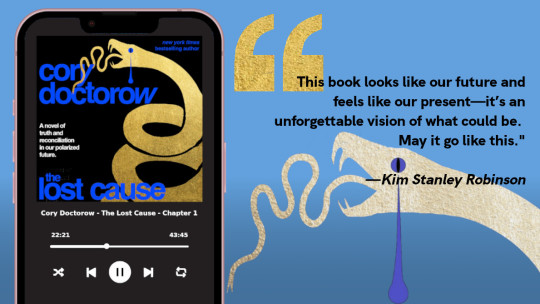#webpage customization
Explore tagged Tumblr posts
Text
Looking for profile and web customization blogs/pages/web pages that are both Hellaverse and Vivziepop fan friendly. If you know any please let me know. I may have to learn how to create my own stuff at this rate.
#hazbin hotel#Helluvaboss#vivziepop#vivzieverse#profile customization#webpage customization#Tumblr Blog Customization#da stamps#stamps#buttons#blinkies#editblr#tumblr blog#pfp#webpage#profile#edits#profile frames#hexagon stamps#layouts#profile layouts#tumblr blog layouts#webpage layouts#carrd resources#Carrd#carrd layouts
3 notes
·
View notes
Text

i can't hang out with the haunted eye
though i don't know why
#myart#animorphs#crayak#got carried away with this while i was customizing the webpage for this sideblog#im learning css btw. soon this blog will be so cool you wont even know its tumblr anymore#i'm torn between making it andalite tech-themed or crayak-themed to keep in tandem with the username#what do U guys Thank....#theres also the secret third option of making it chee/pemalite themed which i also have a pinterest board for :3c
113 notes
·
View notes
Text

AU where they’re just 2 silly guys
#my art#shadow the hedgehog#sonic the hedgehog#sonadow#doodle everyday#shadow#sonic#sonic x shadow#sonic gijinka#gijinka#ummmm on another note#is anyone else’s tumblr buggy ToT#like ads sending you to their webpage as soon as they load???#doodle#sorry they’re anime guys#the pillows are a reference to a reblog made on a previous post of mine lol#sonadow own weird custom pillows in every universe#it’s their love language
93 notes
·
View notes
Text

Huge Columbo statue in someones library office room ……
#saw it in google images#also the web link was redirecting to another webpage with no above picture on sight so basicallly dead#along with other cute columbo custom figures images#but this 😭#imma guess this height is like close to 5’2 😭😭 statues looks tall#columbo
259 notes
·
View notes
Text
youtube
Those of you following me may be aware that I’m trying to draw every room/area in Undertale for the 10th anniversary.
You know, just for fun, since I like this game a lot and have liked it since I was like. 10. and i’ve done a lot of art for it and putting it all together like this is a fun way to showcase both how insane about this game i am and how far i’ve come as an artist since i first got into it.
Well, I’ve finished the Ruins and this is my cry for help because i have No fucking clue how to format this. current iteration is a 1fps slideshow made in flipaclip which is… arguably watchable i guess but like. there has to be a better way. surely.
#art#sketch#digital art#fanart#undertale#video#frisk#chara#wip#phase 64#for the final version i���m planning to add stuff like music that changes based on the areas#and annotations with the dates each piece was drawn and whether it was for an au or a lyric comic or just a standalone piece#but i really feel like doing it in this format is just. Not ideal at all#and i have no idea what i could do that would work better#i have vague ideas of like… maybe some kind of custom webpage where you navigate between the images with arrow keys or something?#idk this project sounded really cool in my head but the further i go with it the more i realize i have no idea how to actually#present it when it’s done#so uh. Please Help#Youtube
15 notes
·
View notes
Text
I MADE A NEOCITIES IF ANYBODY WANTS TO GO AND CHECK THAT OUT !!!!!!!
#artists of tumblr#2000s scene#neocities#web resources#old internet#scenester#internet#webpage#custom webpage#neocities webpage#intro#intro post#artist
4 notes
·
View notes
Text
hauving a normal one now that Mercury Drowning is finally finished lol
#no joke ive been working on this for weeks#its been like the whole month of febuary#''cal how does it take a whole month to make a playlist'' uhh you get very picky about the music and you build a custom webpage for it
4 notes
·
View notes
Text
Nintendo customer support is the worst. Like, beyond useless 😒😭
Has anyone here had Miitopia for Switch and it wouldn’t do wigs and makeup? Were you able to solve it? (I’m fully updated)
#miitopia#nintendo#ugh like unless you need one of the five things they can do#their customer support just sends you to the webpage#which they did AFTER AN HOUR on the phone#my spoons were already knives#i’m tired#miis
1 note
·
View note
Text
its time i update my webpage.
going to give it a new look once again but i dont know what colour scheme to base it off of.. ?
#gutzz_chat#webpage#tumblr website#custom tumblr theme#emo blog#goth blog#emo scene#scenemo#blog theme#☁️/🐺/♋️/❄️/🪽
1 note
·
View note
Text
Choose a Web App Development Company in Madurai
Systimanx is a leading web app development company in Madurai that offers innovative, scalable, and user-friendly solutions for businesses. With our expertise in web app development, we can help clients bring their vision to life.
#technology#software development#webpage design#web application development#websitedesign#web page design and development company#web development#web developing company#web application services#custom web application development#best web development company
1 note
·
View note
Text
Now What??! Blogging Emergency
WordPress limited the number of pics/snips I could have and my blog as I knew it was dead in the water. After a LOT of research into many blogging and web platforms I found HubSpot for free. I liked a lot about it: FREE (the biggest constraint) I could customize the main page and colors and stuff. There was a word doc editor right on the post. Allowance of all the pics I would need. Really a…
#blog#blogging#customization#domain#editing#free#HubSpot#images#limit#money#pictures#platform#series#space#webpage#website#wordpress#writing
0 notes
Text
React is actually kinda cool…. I hate to admit it but it makes html not suck ass
#.txt#there’s some leg work you gotta do esp for more complex projects#but for making your own custom and reusable components it’s fucking. really nice#like even for static webpages it’s better than nothing#object orientation is a good solution to a lot of problems despite what annoying csci YouTubers tell you
1 note
·
View note
Text
How UX Design Saves Time and Money?

UX design is a path that ties a knot between the visitors and the business goals. It ensures that strategy and requirements are interconnected and set the direction for visual design and happy customers. Apart from making the customer explore the application smoothly, it also saves time and money.
Thinking why am I saying this? Read below and know how UX design saves your time and money. Moreover, also know why UX design is a critical ingredient in the digital space.
Rework is hectic:
Imagine you wanted to build a house, but now you are not happy with the final output. The amount of rework that requires finishing the whole project is so much. A UX designer is like an architect for any digital project irrespective of the industry. They set expectations and outline work for other teams and give blueprints to follow the path in order to get the desired output. Therefore, we say strategized UX designs can save much of your time and work.
Clear idea and flow
Hiring a UX designer also saves everyone time in meetings discussing requirements, because a designer can give a clear overview and prototypes to start the work that visually appealing before any code has been written. A designer can instantly crafts dummy mockups to show what the application will look like at the final stage, without having to discuss it each time, by reiterating the requirements again and again. The proficient designers have the ability to make the whole team have a final view by keeping everyone in the loop and reducing meeting times.
Specified development Cycles
Designing and development go hand in hand time because it can be done in parallel. While frontend and backend developers are busy building, planning, architecture, the designers are busy creating, iterating, and testing wireframes. By the time the design is finalized and into the picture, the developers are ready to merge the technology and platform to bring out the best output.
Fix-It Before It's Broken
A user experience designer will perform some of the strategized usability checks on the app to check the performance, either through user tests or design evaluations. This directly indicates that what doesn't work and what works even before the developers begin the development part. The UX Designers try various designs and keep the project on track and clear for all the teammates in the loop. The ability of a designer to quickly iterate on prototypes means that you can make development decisions faster and have the confidence that you're building the right app, to begin with.
Hire a Designer
When someone fails to do the design up-front himself, developers mess it up creating an application without a head and tail. However, contrastingly sometimes those people will probably have some good ideas, but it will be more costly and time-consuming than it needs to be and result in an application that's more difficult to use and understand.
Final Touch
Therefore, it is better to build any application under the designer's guidance and support. Hope you would have got the point of how much the UX designers simplify the job of any developers. A good designer not only saves your time and money but also your energy and effort put into it.
#php development#wordpress development#custom web design#custom web development#ecommerce web design#wordpress website#web development#seo services#custom web#web design#digital marketing#webpages#webdesign#web developer#custom web developer#custom website development#cms services
0 notes
Text
i might actually make a carrd. tumblr folk seem to like those & it'd give me a lot more room to share a little bit more abt myself like what anime, games and music im into, cause oh boy my pinned is lookin looongwinded compared to others ive seen lol
0 notes
Text
Are there any themes (or ways to modify existing themes) that show the results of completed polls on the webpage version of blogs?
On a sideblog I've reblogged some polls where seeing the results is necessary to get the joke/point of the post (like the OG vanilla extract one) but on the ___.tumblr.com version it doesn't show the results even after the poll is completed :/
#tumblr themes#themes#off topic#I really hate linking the dashboard versions of my blogs#not least because Tumblr is increasingly trying to do login walls#plus I just prefer the look of custom themes and the feel of a distinct webpage rather than tumblr.com/___#but I digress
0 notes
Text
Google’s enshittification memos

[Note, 9 October 2023: Google disputes the veracity of this claim, but has declined to provide the exhibits and testimony to support its claims. Read more about this here.]

When I think about how the old, good internet turned into the enshitternet, I imagine a series of small compromises, each seemingly reasonable at the time, each contributing to a cultural norm of making good things worse, and worse, and worse.
Think about Unity President Marc Whitten's nonpology for his company's disastrous rug-pull, in which they declared that everyone who had paid good money to use their tool to make a game would have to keep paying, every time someone downloaded that game:
The most fundamental thing that we’re trying to do is we’re building a sustainable business for Unity. And for us, that means that we do need to have a model that includes some sort of balancing change, including shared success.
https://www.wired.com/story/unity-walks-back-policies-lost-trust/
"Shared success" is code for, "If you use our tool to make money, we should make money too." This is bullshit. It's like saying, "We just want to find a way to share the success of the painters who use our brushes, so every time you sell a painting, we want to tax that sale." Or "Every time you sell a house, the company that made the hammer gets to wet its beak."
And note that they're not talking about shared risk here – no one at Unity is saying, "If you try to make a game with our tools and you lose a million bucks, we're on the hook for ten percent of your losses." This isn't partnership, it's extortion.
How did a company like Unity – which became a market leader by making a tool that understood the needs of game developers and filled them – turn into a protection racket? One bad decision at a time. One rationalization and then another. Slowly, and then all at once.
When I think about this enshittification curve, I often think of Google, a company that had its users' backs for years, which created a genuinely innovative search engine that worked so well it seemed like *magic, a company whose employees often had their pick of jobs, but chose the "don't be evil" gig because that mattered to them.
People make fun of that "don't be evil" motto, but if your key employees took the gig because they didn't want to be evil, and then you ask them to be evil, they might just quit. Hell, they might make a stink on the way out the door, too:
https://theintercept.com/2018/09/13/google-china-search-engine-employee-resigns/
Google is a company whose founders started out by publishing a scientific paper describing their search methodology, in which they said, "Oh, and by the way, ads will inevitably turn your search engine into a pile of shit, so we're gonna stay the fuck away from them":
http://infolab.stanford.edu/pub/papers/google.pdf
Those same founders retained a controlling interest in the company after it went IPO, explaining to investors that they were going to run the business without having their elbows jostled by shortsighted Wall Street assholes, so they could keep it from turning into a pile of shit:
https://abc.xyz/investor/founders-letters/ipo-letter/
And yet, it's turned into a pile of shit. Google search is so bad you might as well ask Jeeves. The company's big plan to fix it? Replace links to webpages with florid paragraphs of chatbot nonsense filled with a supremely confident lies:
https://pluralistic.net/2023/05/14/googles-ai-hype-circle/
How did the company get this bad? In part, this is the "curse of bigness." The company can't grow by attracting new users. When you have 90%+ of the market, there are no new customers to sign up. Hypothetically, they could grow by going into new lines of business, but Google is incapable of making a successful product in-house and also kills most of the products it buys from other, more innovative companies:
https://killedbygoogle.com/
Theoretically, the company could pursue new lines of business in-house, and indeed, the current leaders of companies like Amazon, Microsoft and Apple are all execs who figured out how to get the whole company to do something new, and were elevated to the CEO's office, making each one a billionaire and sealing their place in history.
It is for this very reason that any exec at a large firm who tries to make a business-wide improvement gets immediately and repeatedly knifed by all their colleagues, who correctly reason that if someone else becomes CEO, then they won't become CEO. Machiavelli was an optimist:
https://pluralistic.net/2023/07/28/microincentives-and-enshittification/
With no growth from new customers, and no growth from new businesses, "growth" has to come from squeezing workers (say, laying off 12,000 engineers after a stock buyback that would have paid their salaries for the next 27 years), or business customers (say, by colluding with Facebook to rig the ad market with the Jedi Blue conspiracy), or end-users.
Now, in theory, we might never know exactly what led to the enshittification of Google. In theory, all of compromises, debates and plots could be lost to history. But tech is not an oral culture, it's a written one, and techies write everything down and nothing is ever truly deleted.
Time and again, Big Tech tells on itself. Think of FTX's main conspirators all hanging out in a group chat called "Wirefraud." Amazon naming its program targeting weak, small publishers the "Gazelle Project" ("approach these small publishers the way a cheetah would pursue a sickly gazelle”). Amazon documenting the fact that users were unknowingly signing up for Prime and getting pissed; then figuring out how to reduce accidental signups, then deciding not to do it because it liked the money too much. Think of Zuck emailing his CFO in the middle of the night to defend his outsized offer to buy Instagram on the basis that users like Insta better and Facebook couldn't compete with them on quality.
It's like every Big Tech schemer has a folder on their desktop called "Mens Rea" filled with files like "Copy_of_Premeditated_Murder.docx":
https://doctorow.medium.com/big-tech-cant-stop-telling-on-itself-f7f0eb6d215a?sk=351f8a54ab8e02d7340620e5eec5024d
Right now, Google's on trial for its sins against antitrust law. It's a hard case to make. To secure a win, the prosecutors at the DoJ Antitrust Division are going to have to prove what was going on in Google execs' minds when the took the actions that led to the company's dominance. They're going to have to show that the company deliberately undertook to harm its users and customers.
Of course, it helps that Google put it all in writing.
Last week, there was a huge kerfuffile over the DoJ's practice of posting its exhibits from the trial to a website each night. This is a totally normal thing to do – a practice that dates back to the Microsoft antitrust trial. But Google pitched a tantrum over this and said that the docs the DoJ were posting would be turned into "clickbait." Which is another way of saying, "the public would find these documents very interesting, and they would be damning to us and our case":
https://www.bigtechontrial.com/p/secrecy-is-systemic
After initially deferring to Google, Judge Amit Mehta finally gave the Justice Department the greenlight to post the document. It's up. It's wild:
https://www.justice.gov/d9/2023-09/416692.pdf
The document is described as "notes for a course on communication" that Google VP for Finance Michael Roszak prepared. Roszak says he can't remember whether he ever gave the presentation, but insists that the remit for the course required him to tell students "things I didn't believe," and that's why the document is "full of hyperbole and exaggeration."
OK.
But here's what the document says: "search advertising is one of the world's greatest business models ever created…illicit businesses (cigarettes or drugs) could rival these economics…[W]e can mostly ignore the demand side…(users and queries) and only focus on the supply side of advertisers, ad formats and sales."
It goes on to say that this might be changing, and proposes a way to balance the interests of the search and ads teams, which are at odds, with search worrying that ads are pushing them to produce "unnatural search experiences to chase revenue."
"Unnatural search experiences to chase revenue" is a thinly veiled euphemism for the prophetic warnings in that 1998 Pagerank paper: "The goals of the advertising business model do not always correspond to providing quality search to users." Or, more plainly, "ads will turn our search engine into a pile of shit."
And, as Roszak writes, Google is "able to ignore one of the fundamental laws of economics…supply and demand." That is, the company has become so dominant and cemented its position so thoroughly as the default search engine across every platforms and system that even if it makes its search terrible to goose revenues, users won't leave. As Lily Tomlin put it on SNL: "We don't have to care, we're the phone company."
In the enshittification cycle, companies first lure in users with surpluses – like providing the best search results rather than the most profitable ones – with an eye to locking them in. In Google's case, that lock-in has multiple facets, but the big one is spending billions of dollars – enough to buy a whole Twitter, every single year – to be the default search everywhere.
Google doesn't buy its way to dominance because it has the very best search results and it wants to shield you from inferior competitors. The economically rational case for buying default position is that preventing competition is more profitable than succeeding by outperforming competitors. The best reason to buy the default everywhere is that it lets you lower quality without losing business. You can "ignore the demand side, and only focus on advertisers."
For a lot of people, the analysis stops here. "If you're not paying for the product, you're the product." Google locks in users and sells them to advertisers, who are their co-conspirators in a scheme to screw the rest of us.
But that's not right. For one thing, paying for a product doesn't mean you won't be the product. Apple charges a thousand bucks for an iPhone and then nonconsensually spies on every iOS user in order to target ads to them (and lies about it):
https://pluralistic.net/2022/11/14/luxury-surveillance/#liar-liar
John Deere charges six figures for its tractors, then runs a grift that blocks farmers from fixing their own machines, and then uses their control over repair to silence farmers who complain about it:
https://pluralistic.net/2022/05/31/dealers-choice/#be-a-shame-if-something-were-to-happen-to-it
Fair treatment from a corporation isn't a loyalty program that you earn by through sufficient spending. Companies that can sell you out, will sell you out, and then cry victim, insisting that they were only doing their fiduciary duty for their sacred shareholders. Companies are disciplined by fear of competition, regulation or – in the case of tech platforms – customers seizing the means of computation and installing ad-blockers, alternative clients, multiprotocol readers, etc:
https://doctorow.medium.com/an-audacious-plan-to-halt-the-internets-enshittification-and-throw-it-into-reverse-3cc01e7e4604?sk=85b3f5f7d051804521c3411711f0b554
Which is where the next stage of enshittification comes in: when the platform withdraws the surplus it had allocated to lure in – and then lock in – business customers (like advertisers) and reallocate it to the platform's shareholders.
For Google, there are several rackets that let it screw over advertisers as well as searchers (the advertisers are paying for the product, and they're also the product). Some of those rackets are well-known, like Jedi Blue, the market-rigging conspiracy that Google and Facebook colluded on:
https://en.wikipedia.org/wiki/Jedi_Blue
But thanks to the antitrust trial, we're learning about more of these. Megan Gray – ex-FTC, ex-DuckDuckGo – was in the courtroom last week when evidence was presented on Google execs' panic over a decline in "ad generating searches" and the sleazy gimmick they came up with to address it: manipulating the "semantic matching" on user queries:
https://www.wired.com/story/google-antitrust-lawsuit-search-results/
When you send a query to Google, it expands that query with terms that are similar – for example, if you search on "Weds" it might also search for "Wednesday." In the slides shown in the Google trial, we learned about another kind of semantic matching that Google performed, this one intended to turn your search results into "a twisted shopping mall you can’t escape."
Here's how that worked: when you ran a query like "children's clothing," Google secretly appended the brand name of a kids' clothing manufacturer to the query. This, in turn, triggered a ton of ads – because rival brands will have bought ads against their competitors' name (like Pepsi buying ads that are shown over queries for Coke).
Here we see surpluses being taken away from both end-users and business customers – that is, searchers and advertisers. For searchers, it doesn't matter how much you refine your query, you're still going to get crummy search results because there's an unkillable, hidden search term stuck to your query, like a piece of shit that Google keeps sticking to the sole of your shoe.
But for advertisers, this is also a scam. They're paying to be matched to users who search on a brand name, and you didn't search on that brand name. It's especially bad for the company whose name has been appended to your search, because Google has a protection racket where the company that matches your search has to pay extra in order to show up overtop of rivals who are worse matches. Both the matching company and those rivals have given Google a credit-card that Google gets to bill every time a user searches on the company's name, and Google is just running fraudulent charges through those cards.
And, of course, Google put this in writing. I mean, of course they did. As we learned from the documentary The Incredibles, supervillains can't stop themselves from monologuing, and in big, sprawling monopolists, these monologues have to transmitted electronically – and often indelibly – to far-flung co-cabalists.
As Gray points out, this is an incredibly blunt enshittification technique: "it hadn’t even occurred to me that Google just flat out deletes queries and replaces them with ones that monetize better." We don't know how long Google did this for or how frequently this bait-and-switch was deployed.
But if this is a blunt way of Google smashing its fist down on the scales that balance search quality against ad revenues, there's plenty of subtler ways the company could sneak a thumb on there. A Google exec at the trial rhapsodized about his company's "contract with the user" to deliver an "honest results policy," but given how bad Google search is these days, we're left to either believe he's lying or that Google sucks at search.
The paper trail offers a tantalizing look at how a company went from doing something that was so good it felt like a magic trick to being "able to ignore one of the fundamental laws of economics…supply and demand," able to "ignore the demand side…(users and queries) and only focus on the supply side of advertisers."
What's more, this is a system where everyone loses (except for Google): this isn't a grift run by Google and advertisers on users – it's a grift Google runs on everyone.

If you'd like an essay-formatted version of this post to read or share, here's a link to it on pluralistic.net, my surveillance-free, ad-free, tracker-free blog:
https://pluralistic.net/2023/10/03/not-feeling-lucky/#fundamental-laws-of-economics


My next novel is The Lost Cause, a hopeful novel of the climate emergency. Amazon won't sell the audiobook, so I made my own and I'm pre-selling it on Kickstarter!
#pluralistic#enshittification#semantic matching#google#antitrust#trustbusting#transparency#fatfingers#serp#the algorithm#telling on yourself
6K notes
·
View notes